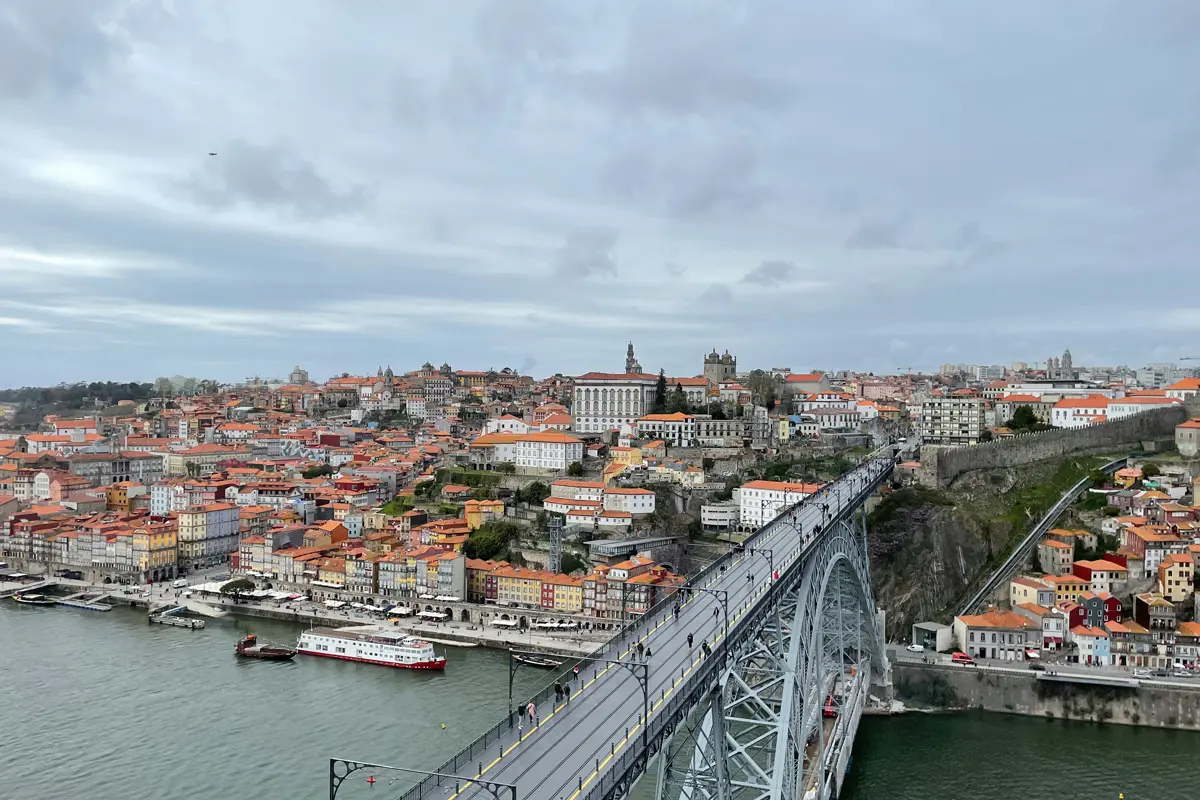
If you’re looking for basic words in Portuguese, the short answer is: start with greetings, polite expressions, and common travel phrases like olá (hello), por favor (please), and obrigado/obrigada (thank you). These simple yet powerful words will make your trip to Brazil or Portugal smoother, show respect to locals, and help you feel more confident as a beginner.
In this complete guide, we’ll go beyond just lists. You’ll get:
- Essential everyday Portuguese words and phrases.
- Differences between Brazilian Portuguese and European Portuguese.
- Tips on pronunciation so you sound natural.
- Cultural notes that explain when and how to use these words.
By the end, you’ll know enough basic Portuguese to greet people, order food, and introduce yourself — plus you’ll understand why locals appreciate even the smallest effort.
Table of Contents
Open Table of Contents
1. Why Learn Basic Words in Portuguese?
Portuguese is spoken by more than 260 million people across the world, mainly in Brazil, Portugal, and several African countries like Angola and Mozambique. While many people in tourist areas speak English, especially in Brazil and Portugal, knowing some basic Portuguese phrases can transform your trip.
- You’ll connect better with locals.
- You’ll show cultural respect.
- You’ll avoid confusion in shops, restaurants, or transportation.
💡 Locals often say that even a simple obrigado makes interactions warmer. It’s the little effort that counts.
2. Greetings and Polite Expressions
Essential Words
- Olá → Hello
- Bom dia → Good morning (before noon)
- Boa tarde → Good afternoon (noon to 6 p.m.)
- Boa noite → Good evening / Good night
- Tchau → Bye (casual, common in Brazil)
- Adeus → Goodbye (more formal, used in Portugal)
Politeness Matters
- Por favor → Please
- Obrigado/Obrigada → Thank you (masculine vs. feminine speaker)
- De nada → You’re welcome
- Com licença → Excuse me (to pass through a crowd)
- Desculpa → Sorry / Excuse me (to apologize or get attention)
💡 In Brazil, greetings are very warm — don’t be surprised if people hug or kiss on the cheek when saying olá.
3. Introducing Yourself
When meeting someone new, knowing how to introduce yourself is essential.
- Qual é o seu nome? → What’s your name?
- Meu nome é… → My name is…
- Prazer → Nice to meet you
Example dialogue:
- Qual é o seu nome? (What’s your name?)
- Meu nome é Ana. Prazer! (My name is Ana. Nice to meet you!)
4. Useful Travel Phrases
Travelers benefit most from practical Portuguese words:
- Onde fica…? → Where is…?
- Onde fica o banheiro? → Where is the bathroom? (Brazil)
- Onde fica a casa de banho? → Where is the bathroom? (Portugal)
- Quanto custa? → How much does it cost?
- Eu não entendo → I don’t understand
- Você fala inglês? → Do you speak English? (Brazil)
- Fala inglês? → Do you speak English? (Portugal)
These phrases are lifesavers when navigating unfamiliar cities.
5. Numbers and Essentials
Numbers 1–10
- um/uma (one)
- dois/duas (two)
- três (three)
- quatro (four)
- cinco (five)
- seis (six)
- sete (seven)
- oito (eight)
- nove (nine)
- dez (ten)
Key Words
- Sim → Yes
- Não → No
- Talvez → Maybe
- Ajuda! → Help!
6. Brazilian vs. European Portuguese
Just like American vs. British English, Portuguese has regional differences.
- Bus: ônibus (Brazil) vs. autocarro (Portugal)
- Ice cream: sorvete (Brazil) vs. gelado (Portugal)
- Bathroom: banheiro (Brazil) vs. casa de banho (Portugal)
Pronunciation also differs. Brazilian Portuguese is more open and melodic, while European Portuguese is faster and more guttural.
💡 But don’t worry — if you learn one version, you’ll still be understood in both regions.
7. Pronunciation Basics
Portuguese vowels can be tricky because of nasal sounds.
- ão (as in não) → nasal sound, similar to “ow” with the air coming through your nose.
- lh (as in filho) → similar to the “lli” in “million.”
- nh (as in senhor) → like the Spanish ñ or “ny” in canyon.
Practicing these sounds early will help you sound more natural.
8. Cultural Notes
- Respect matters: Always use polite words like por favor and obrigado.
- Meals are slow: Don’t rush in restaurants; when ready, say a conta, por favor (the bill, please).
- Greetings are personal: A handshake, cheek kiss, or warm hug is common depending on the region.
💡 In both Brazil and Portugal, using basic words in Portuguese signals that you care about the culture, not just the tourism.
9. Tips to Learn Faster
- Use flashcards for quick word memorization.
- Practice in real conversations with locals or tutors.
- Watch Brazilian novelas or Portuguese films with subtitles.
- Write mini-dialogues using new words daily.
- Download a Portuguese learning app to reinforce basics.
10. Final Thoughts
Learning basic words in Portuguese is one of the fastest and most rewarding ways to improve your travel and communication experience. From greetings like olá to practical phrases like onde fica o banheiro?, these words make every interaction smoother.
🌍 Whether you’re visiting Brazil or Portugal, remember: it’s not about perfection but effort. Locals deeply appreciate when travelers use even the simplest Portuguese phrases.
Key takeaway: Master greetings, politeness, numbers, and simple travel questions. With these basic Portuguese words, you’ll confidently explore new cities and build genuine connections.